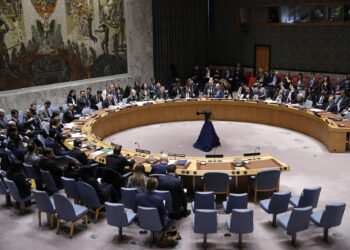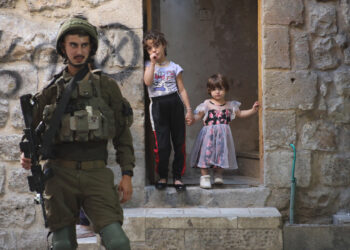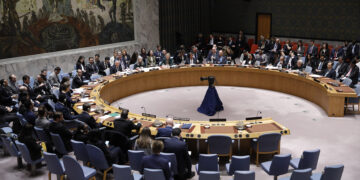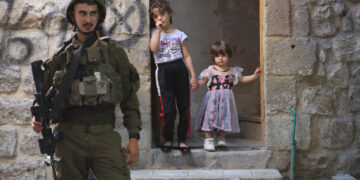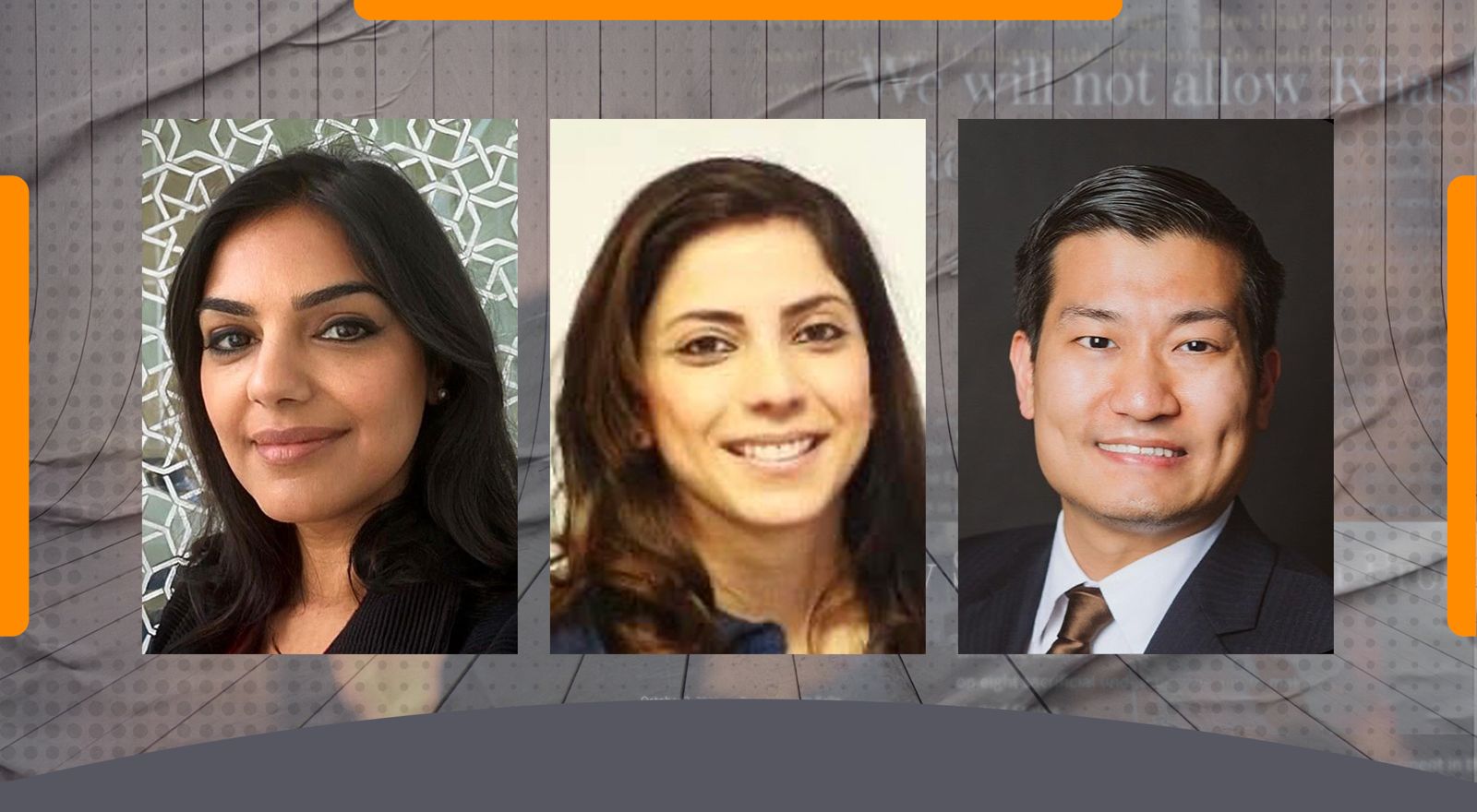Tom Pollitt is a British journalist specializing in the MENA region. He is currently based in Cairo, Egypt.
Israel's ongoing assault on Gaza, in retaliation for the Hamas-led attack into southern Israel on Oct. 7, 2023, has been of a scale and a brutality arguably unmatched since World War II. From the staggering number of civilians among the dead—over 70 percent of them women and children, according to Palestinian health officials—to Israel's blockade of crucial humanitarian aid into the besieged territory, which has led to mass starvation and now famine, the war in Gaza evokes the horrors of another era.
According to a new report published in The Lancet, the eminent British medical journal, the death toll in Gaza could be as high as 186,000 people. That shocking figure, representing roughly 8 percent of Gaza's population, accounts for "indirect deaths" from severe shortages of food, water, shelter and medical care, given how much of Gaza's health-care infrastructure has been destroyed by Israeli bombardment. "In recent conflicts, such indirect deaths range from three to 15 times the number of direct deaths," authors Rasha Khatib, Martin McKee and Salim Yusuf write. "Applying a conservative estimate of four indirect deaths per one direct death to the 37,396 deaths reported, it is not implausible to estimate that up to 186,000 or even more deaths could be attributable to the current conflict in Gaza."
Foreign aid workers have witnessed the horrors in Gaza firsthand—and have also been in the crossfire themselves. Since Oct. 7, some 500 health workers have been killed, a number that is also unprecedented in modern conflict. According to Human Rights Watch, the Israeli Defense Forces have deliberately targeted aid workers in Gaza, including in the airstrikes on a convoy of World Central Kitchen vehicles on April 1, which killed seven aid workers.
Médecins sans Frontières (MSF), also known as Doctors Without Borders, is one of the most active aid organizations in Gaza. Its medical staff have worked tirelessly to treat Palestinians in unimaginable conditions and get humanitarian assistance into Gaza. MSF buildings and convoys were attacked 26 times between Oct. 7 and May 14, according to the aid organization. MSF workers and their patients were also forced to leave 12 different health facilities during that period, due to attacks on them by the Israeli military.
Annie Thibault is a Canadian aid worker who was stationed in Gaza as an administrative manager for MSF's emergency medical program from February to March this year. She spoke to Democracy in Exile about the dire situation on the ground in Gaza when she was there and since she left. "My motivation for undertaking humanitarian work is simple. I consider it my responsibility," she said. "This is not somebody else's war. What is happening in Gaza is happening to all of us."
The following transcript has been edited lightly for length and clarity.
For anyone who isn't in Gaza or hasn't been to Gaza, it's nearly impossible to grasp the severity of the situation there. The level of violence is unthinkable.
- Annie Thibault
How would you summarize your experience in the Gaza Strip? What is your overriding feeling about the situation there?
Annie Thibault: My experience in Gaza seemed out of this world, and I mean every single word here. What is happening there is something that does not belong in this reality. I would like what I've heard and seen to be extraterrestrial; unfortunately, it is unfolding on the face of this Earth.
For anyone who isn't in Gaza or hasn't been to Gaza, it's nearly impossible to grasp the severity of the situation there. And yes, it is as bad there as depicted in the media. The level of violence is unthinkable.
When I worked there for a month, every day was like being on autopilot. You just focus on the work that needs to be done and your duties there. When you're immersed in the war, you almost forget how abnormal it is to hear rockets all day long. Even when the buildings were shaking, I wasn't even scared—not once. I could hardly explain this phenomenon, but you just become numb. Numb to something that you should never get used to—let alone for those who have been enduring it for months. Stepping outside on the Egyptian side of Rafah, I was struck by the injustice and absurdity of it all as I looked back on the enclave of death and destruction.
People face inhumane conditions and have endured this situation for way too long. For the Palestinian people of Gaza, each passing day since Oct. 7 is a nightmare in which they have to do unthinkable things to survive. Each passing day they are forced to witness the genocide and annihilation of their people, their land, their culture.
My overriding feeling about the situation there is extreme sadness and powerlessness. People here [in Canada] say they feel powerless about the situation in Gaza. I can say that even when you've been there on the field, contributing as much as possible to restore some health services, you're still left feeling powerless—you still wish you could do more.
From your personal experience, how does the medical and humanitarian situation compare to other conflicts?
I have worked for several months in the eastern Democratic Republic of the Congo and eastern Chad, covering contexts devastated by conflict. While each conflict is unique, the disrespect for international law and scale of the violations of the humanitarian space are nearly unprecedented in Gaza. Aid is so severely hindered, it's plainly almost impossible to work.
For eight months, Israeli forces have attacked MSF convoys, detained staff and bulldozed MSF vehicles. Hospitals have been bombed and raided, further obstructing aid efforts. Nearly 500 health workers have been killed in Gaza, including five of our own MSF colleagues. MSF alone has been attacked 20 times.
The situation in Gaza is so dire, nothing less than a full and complete cease-fire will improve the humanitarian situation. Not an improvement in the flow of aid, not reopening the borders, not a "humanitarian pause."
- Annie Thibault
Stories abound about humanitarian aid, including food and medical supplies, being blocked by the IDF and even Israeli civilians on its way into Gaza. To what extent were medical supplies understocked, and how did this affect your work and that of other medical services?
As we speak, MSF has been unable to bring any medical supplies to Gaza since the end of April. This shortage has very tangible impacts, MSF has already had to close a health point for several days due to lack of medication. Stocks are so low that the organization might have to stop or further reduce some of its medical activities in Gaza.
Even the most basic medical supplies, like painkillers or gauze, are severely lacking. I am not a medical professional myself, so I have not been facing these challenges directly, but I can relay some of my colleagues' testimonies. These shortages are forcing medical professionals into agonizing situations, where they must decide which patient or injury to prioritize. They are forced into witnessing needless suffering such as patients enduring amputations or surgeries without anesthesia. For these highly qualified and competent individuals, the situation is both devastating and deeply personal. It's like asking a fireman to watch a house burn down without giving him a water hose.
I cannot stress enough how critical the lack of health care services in Gaza is. Diseases are spreading. People have atrocious, atrocious wounds. In some cases, they have injuries that, in a normal situation, they could easily recover from if they had access to treatment and rehabilitation. Unfortunately, as these are unavailable, treatable injuries become life-long handicaps. The damage is real, and long term. It will last way beyond this war.
Beyond the casualties reported in headlines, countless lives are lost due to untreated health conditions such as chronic illnesses, cancer, malnutrition and other preventable causes. Thousands of people died for a lack of medical care. They may not have been hit by rockets or bullets, and their lives would have been spared if Gaza was not in a state of war.
What needs to be done to improve the humanitarian situation in Gaza in your view?
The situation in Gaza is so dire, nothing less than a full and complete cease-fire will improve the humanitarian situation. Not an improvement in the flow of aid, not reopening the borders, not a "humanitarian pause." Only a full and complete cease-fire. Anything short of that is a partial remedy.













